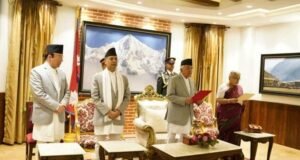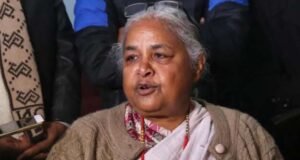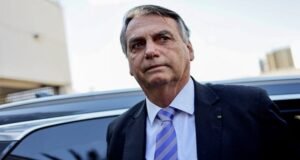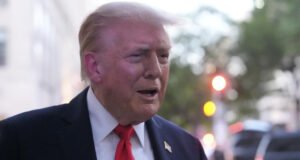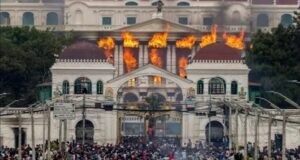
Tuesday’s poll follows a weekend parliamentary election in the Kurdish autonomous region, mired in economic crisis and still in shock from the fallout of the plebiscite which sparked a punishing response from Baghdad.
The largely ceremonial role of president has been reserved for the Kurds since Iraq’s first multi-party elections in 2005, two years after the US-led invasion that toppled dictator Saddam Hussein.
Under a tacit accord between the Kurdistan Democratic Party and the Patriotic Union of Kurdistan, the PUK would hold the federal presidency and the KDP the post of Iraqi Kurdistan’s president.
But the Iraqi Kurdish presidency has been left vacant since KDP leader Massud Barzani’s mandate ended following the September 2017 referendum that he championed — setting up a showdown in Baghdad.
The vote for an Iraqi president was scheduled for Monday before being postponed due to the lack of a quorum.
In a first round of polling Tuesday, neither Saleh nor Hussein won the two-thirds vote necessary to win outright, forcing a second round.
– Referendum fallout –
The independence vote last year saw more than 92 percent of Kurds back secession, but the federal government rejected the poll as “illegal”.
Baghdad then imposed economic penalties and sent federal troops to push Kurdish forces out of oil fields in the disputed Kirkuk province that were vital for the autonomous region’s economy.
Barzani had backed for president Fuad Hussein, his 72-year-old former chief of staff and veteran of the opposition to Saddam.
But the post went to Saleh, a 58-year-old moderate who has served both as Iraqi deputy premier and Kurdish prime minister.
He was part of an interim authority put in place by the United States following the 2003 invasion that ousted Saddam.
He later became deputy prime minister under Nuri al-Maliki then returned to the Kurdish regional capital Arbil in 2009 to become head of the Kurdistan government.
For senior PUK official Khaled Shouani, it was important to put forward a “moderate” candidate for president who would be “accepted by all” and push to repair ties between Baghdad and the Kurdish region.
The new president’s tendency to push for consensus would also satisfy both the United States and the PUK’s traditional ally Iran, the two main international powers in Iraq, Shouani said.
More than four months after legislative elections, Iraq’s parliament has chosen a speaker of the house but the post of prime minister has yet to be decided.
 Weekly Bangla Mirror | Bangla Mirror, Bangladeshi news in UK, bangla mirror news
Weekly Bangla Mirror | Bangla Mirror, Bangladeshi news in UK, bangla mirror news


